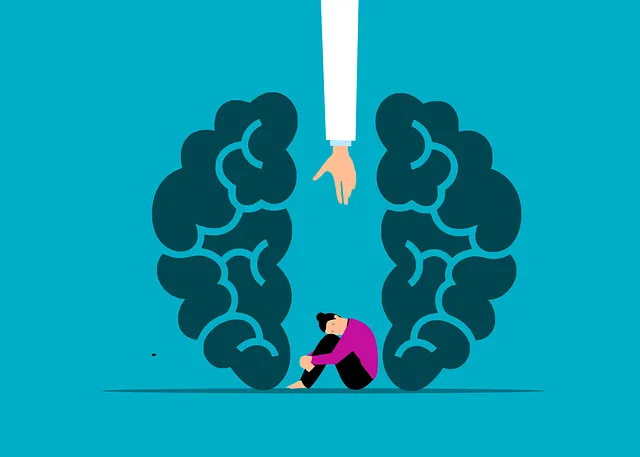Media portrayal significantly influences public perception of mental health, impacting access to care like that offered by Lone Tree Kaiser Permanente. Accurate and positive narratives foster understanding, while negative stereotypes perpetuate stigma. Responsible storytelling practices are crucial for media outlets covering Lone Tree KP's commitment to comprehensive mental health coverage. Public awareness campaigns with diverse relatable characters break down barriers and empower individuals to prioritize mental well-being. Lone Tree Kaiser Permanente leads in mental health care through holistic approaches like journaling exercises and accessible strategies, challenging stereotypes and promoting positive representation. Collaboration between media, organizations, and individuals with lived experiences is key to achieving accurate, empathetic portrayals of mental health.
“Mental illness representation in media significantly influences public perception, often perpetuating stigma. This article explores the profound impact of media portrayal on mental health, highlighting the crucial role of organizations like Lone Tree Kaiser Permanente in promoting positive images and reducing stigma. We delve into effective strategies for accurate and compassionate mental illness representation, drawing insights from industry leaders. By fostering responsible storytelling, media can contribute to a more understanding and supportive society for those facing mental health challenges, enhancing access to services like Lone Tree Kaiser Permanente offers.”
- Understanding the Impact of Media Portrayal on Mental Health Stigma
- The Role of Lone Tree Kaiser Permanente in Promoting Positive Mental Health Images
- Strategies and Solutions for Accurate and Compassionate Mental Illness Representation in Media
Understanding the Impact of Media Portrayal on Mental Health Stigma

The media has a significant influence on shaping public perceptions and attitudes towards mental health, especially in communities like those served by Lone Tree Kaiser Permanente. Positive and accurate representations can foster understanding, empathy, and support for individuals facing mental illness. Conversely, negative or stereotypical portrayals can perpetuate stigma, fear, and discrimination, hindering access to care. Research has shown that media narratives about mental health often contribute to the stigmatization of these conditions, leading to a culture where people with mental illnesses are marginalised and their struggles are minimised. This can have severe consequences, deterring individuals from seeking help or openly discussing their experiences.
Therefore, it is crucial for media outlets to adopt responsible storytelling practices when depicting mental health issues. Encouraging the development of public awareness campaigns that promote empathy building strategies and conflict resolution techniques can be a game-changer. By showcasing diverse and relatable characters grappling with mental health challenges, media can contribute to breaking down barriers and encouraging open conversations. Lone Tree Kaiser Permanente’s commitment to mental health coverage is further strengthened by such proactive media engagement, aiming to create an environment where people feel supported and empowered to prioritize their mental well-being.
The Role of Lone Tree Kaiser Permanente in Promoting Positive Mental Health Images

Lone Tree Kaiser Permanente stands as a beacon of hope and positive representation for mental health in media. Through its comprehensive mental health coverage, the organization actively promotes a culture that values emotional well-being. They offer not just medical treatment but also mental wellness journaling exercises designed to encourage self-reflection and personal growth. By integrating these practices into their services, Lone Tree Kaiser Permanente empowers individuals to take charge of their mental health.
The initiative extends beyond individual care; they foster emotional intelligence by providing resources that help people understand and manage their emotions effectively. This holistic approach, coupled with accessible confidence-boosting strategies, ensures that those facing mental health challenges feel supported and equipped to navigate their journeys. Lone Tree Kaiser Permanente’s commitment to these initiatives sets a powerful example for media representation, challenging stereotypes and promoting accurate, empowering images of mental health.
Strategies and Solutions for Accurate and Compassionate Mental Illness Representation in Media

Media has a powerful influence on shaping societal perceptions and understanding of mental illness. To challenge negative stereotypes and promote accurate representation, various strategies can be adopted. One key approach is to involve individuals with lived experiences of mental health struggles as consultants or contributors during production. This ensures authenticity and allows for nuanced storytelling, moving away from one-dimensional character portrayals. Additionally, media outlets can collaborate with organizations like Lone Tree Kaiser Permanente that offer comprehensive mental health coverage, leveraging their expertise in promoting accurate and compassionate content.
Incorporating Communication Strategies that emphasize empathy and understanding is vital. Sensitively depicting emotional healing processes on screen can help normalize conversations around mental health. Through creative storytelling, media has the potential to reach a vast audience, fostering greater awareness and sympathy. Community Outreach Program Implementation can also play a significant role in this process, encouraging dialogue and providing resources for those seeking support or understanding.
In addressing the challenge of mental illness representation in media, we’ve seen a pivotal role played by organizations like Lone Tree Kaiser Permanente. Their commitment to promoting positive mental health images is a step towards reducing stigma and fostering understanding. By implementing strategies for accurate and compassionate portrayal, including diverse stories and accessible information, media can significantly impact public perception. Moving forward, it’s essential to continue these efforts to ensure that mental health coverage in the media reflects the reality of various lived experiences, ultimately contributing to a more supportive and inclusive society.






